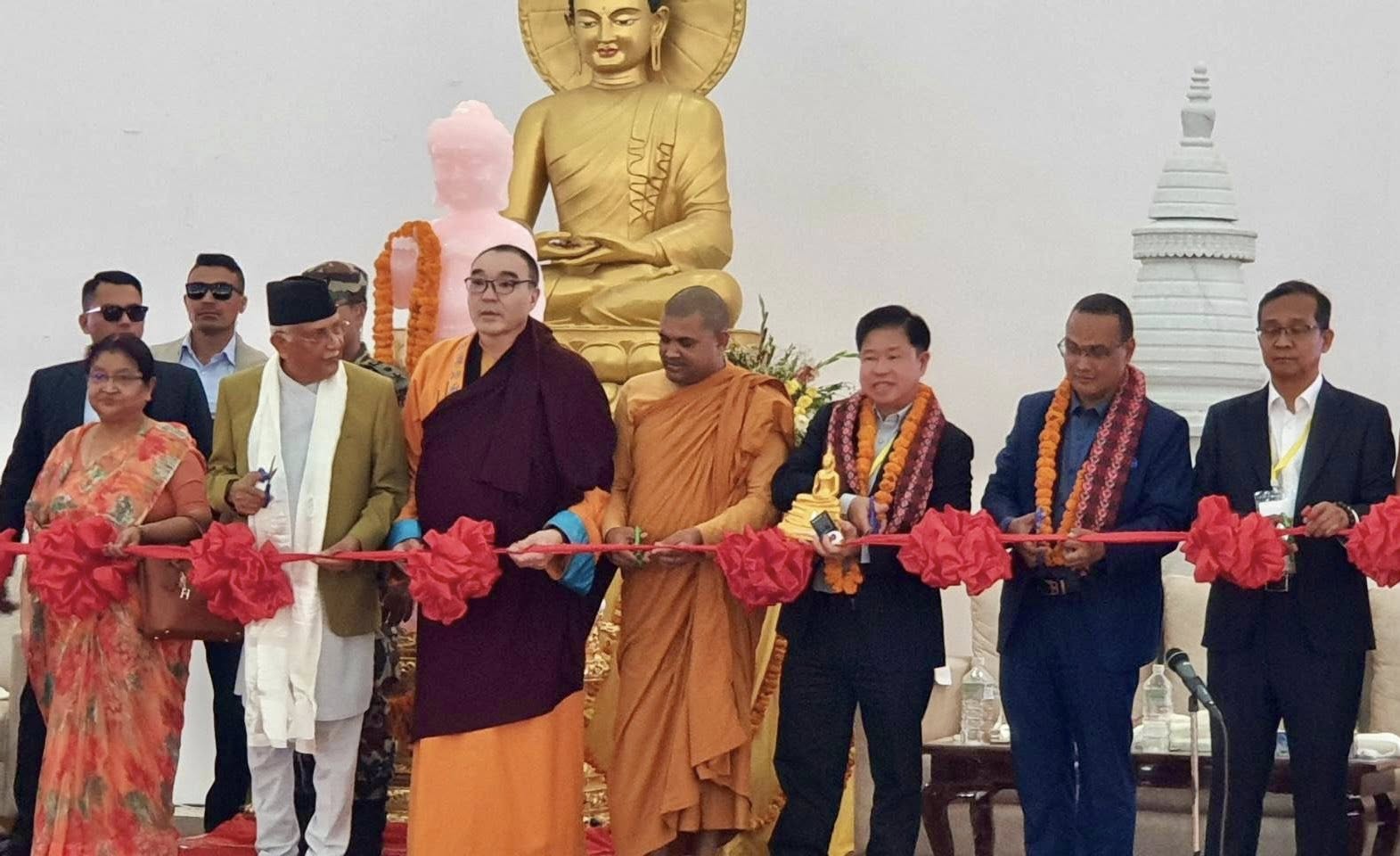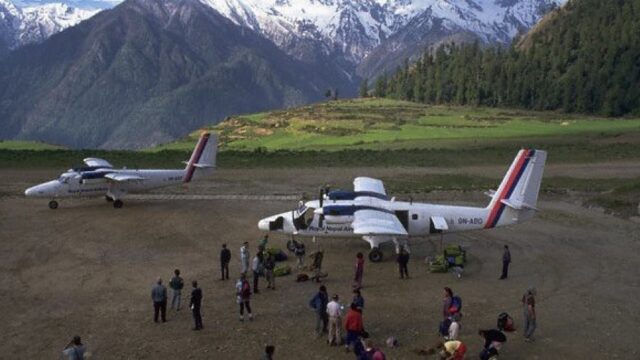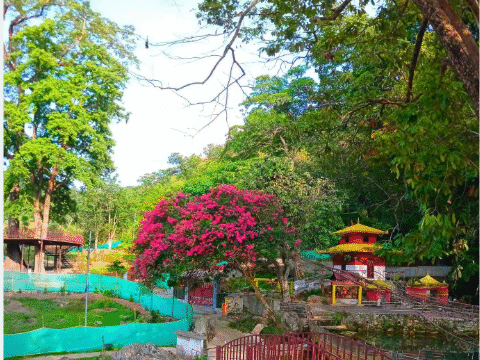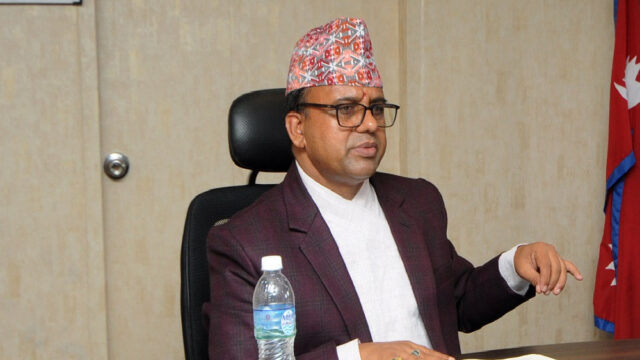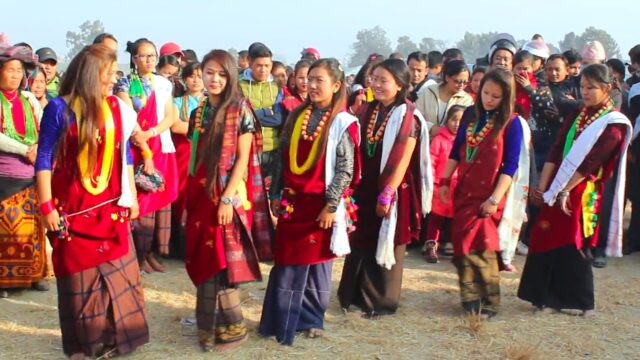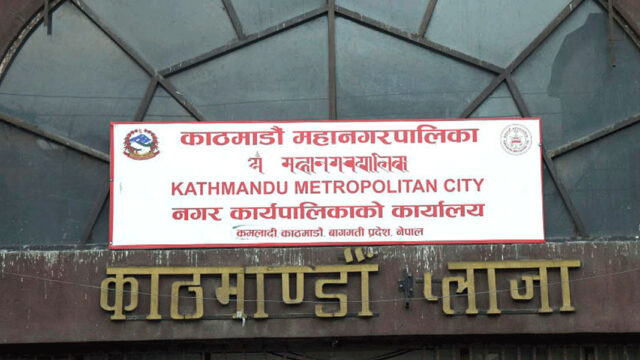Prime Minister KP Sharma Oli has highlighted the growing global relevance of Lord Buddha’s philosophy of peace and non-violence in today’s world, which is increasingly marred by conflict, hatred, and unrest. Addressing the inaugural ceremony of the 4th Asian Buddhist Cultural Festival held today in Lumbini, the sacred birthplace of Buddha, PM Oli emphasized that Buddha’s timeless teachings offer crucial guidance for achieving harmony and compassion in the modern era.
Speaking before a gathering of eminent Buddhist scholars, cultural experts, and dignitaries from around 40 countries, Prime Minister Oli underlined that the path shown by Gautam Buddha must be made more visible across the globe. “The teachings of peace and non-violence that Buddha bestowed upon humanity should guide the world now more than ever,” said PM Oli. “We must ensure that his philosophy is promoted not only as a spiritual guideline but as a necessary framework for peaceful coexistence.”
He stressed that events like the Asian Buddhist Cultural Festival play a pivotal role in showcasing Lumbini to the world, not just as a place of pilgrimage but also as a center for the study of Buddhist education, art, philosophy, and culture. “Such programs elevate the status of Lumbini globally and invite scholars and practitioners from all walks of life to engage with Buddhist wisdom,” Oli said, adding that Buddhism’s core messages offer invaluable lessons for contemporary society.
The Prime Minister pointedly remarked that war and violence have never established peace, and that an arms race is inherently detrimental to the collective stability of the world. In a firm yet hopeful tone, he asserted, “Lasting peace cannot be achieved through the stockpiling of weapons. Only through the internalization of Buddha’s teachings on peace, non-violence, and compassion can humanity move toward true global harmony.”
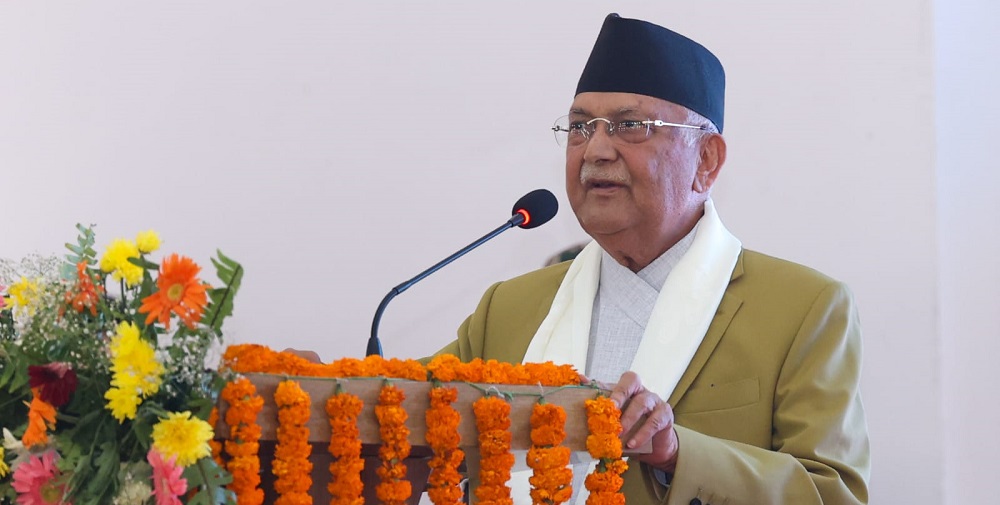
PM Oli further called upon the Minister for Culture, Tourism, and Civil Aviation to actively promote Lumbini through education, research seminars, discourse, meditation, and yoga. He emphasized that beyond its spiritual significance, Lumbini should become an international hub for Buddhist scholarship and intercultural dialogue.
The 4th Asian Buddhist Cultural Festival itself is a significant step in that direction. The festival will feature presentations of 40 working papers on a variety of subjects, including Buddhist culture, art, tradition, medicine, and education. The event has gathered academics, monks, cultural figures, and researchers from a wide range of backgrounds, aiming to foster a deeper understanding of Buddhism’s multifaceted contributions to world civilization.
Minister for Culture, Tourism, and Civil Aviation Badri Prasad Pande, Chief Minister of Lumbini Province Chet Narayan Acharya, and several other dignitaries also attended the grand opening ceremony. The presence of delegates from 40 different countries added to the international prestige of the festival and underscored the global appeal of Buddhist philosophy.
Tourism Minister Pande highlighted the government’s commitment to preserving and promoting Lumbini as a world heritage site and as a vital center for Buddhist pilgrimage and academic studies. Chief Minister Acharya reiterated the provincial government’s dedication to improving infrastructure and services in Lumbini to better accommodate pilgrims, scholars, and tourists from around the world.
The overarching goal of the festival is to promote global peace through the dissemination of Buddhist philosophy, art, and cultural heritage. Organizers hope that the interactions and exchanges taking place during the festival will help reinforce the universal values of compassion, tolerance, and mutual respect.
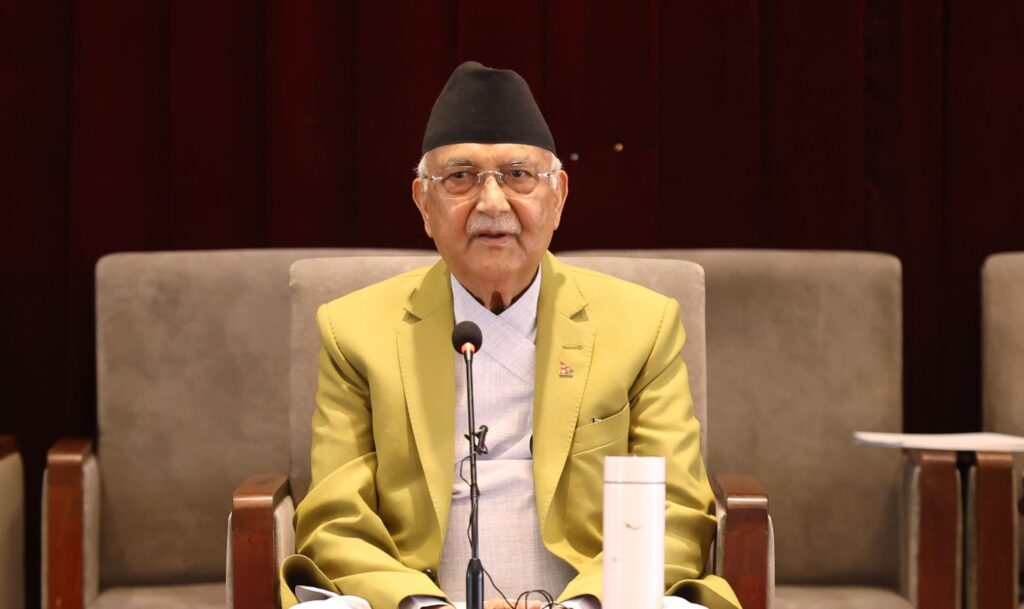
Scholars presenting their research at the festival are expected to explore a wide range of topics from the historical spread of Buddhism across Asia to its influence on art, medicine, and education. Sessions on traditional Buddhist medicine, meditation techniques, and cultural preservation will offer fresh insights into how ancient wisdom can address modern-day challenges.
One of the key messages resonating through the festival is the urgent need for greater intercultural dialogue and cooperation at a time when division and polarization seem to be intensifying globally. By revisiting and reviving Buddha’s teachings, the festival aspires to plant seeds of understanding, kindness, and peace in the hearts of individuals and nations alike.
As the world grapples with crises ranging from armed conflicts to social alienation, the 4th Asian Buddhist Cultural Festival in Lumbini stands as a powerful reminder that humanity possesses within its traditions the tools needed to create a more just, peaceful, and compassionate world.
Prime Minister Oli’s call to action, echoing Buddha’s age-old messages, serves not just as a ceremonial statement but as a profound appeal to the conscience of the modern world urging leaders and citizens alike to choose peace over violence, dialogue over conflict, and compassion over hatred.
